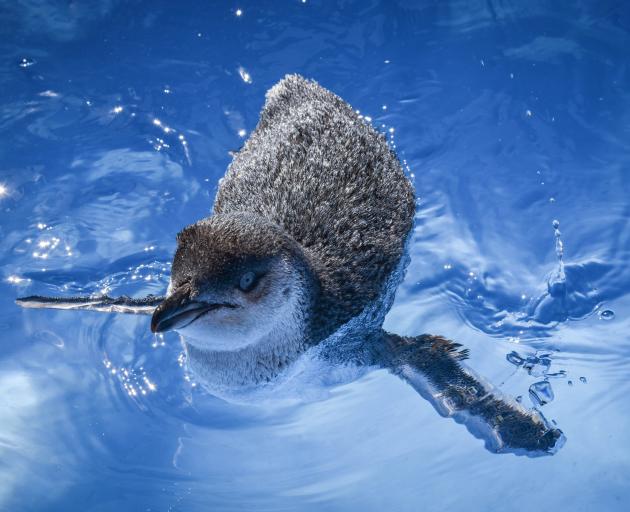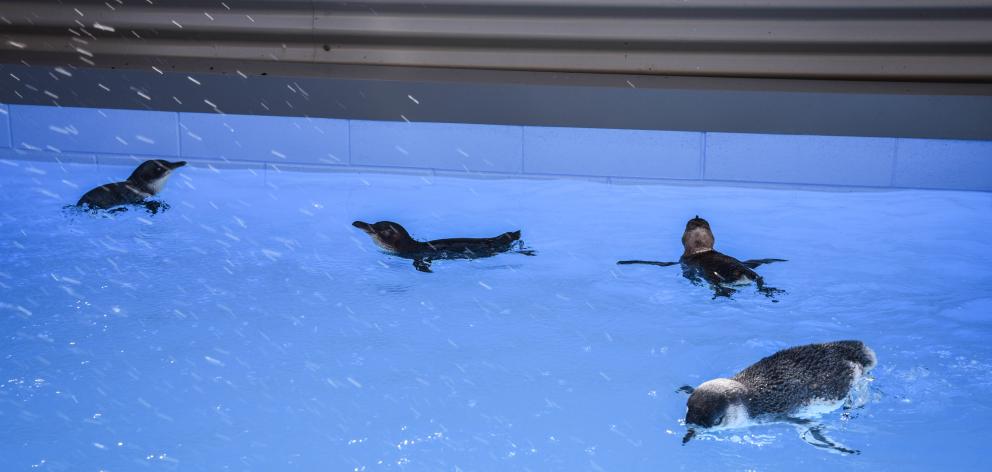
While the colony is closed for evening viewings or tours, a small number of staff continue to feed and care for sick and injured penguins in their care, under the essential service category, behind locked doors.
"Nothing has really changed for me — except no-one is here," Oamaru Blue Penguin Colony science and environmental manager Dr Philippa Agnew said.
Until Friday, when Dr Agnew released a yellow-eyed penguin and a little penguin back into the wild, there were nine birds at the rehabilitation centre.
"Interestingly, that was the most birds we’ve ever had in care at one time," she said.
"Normally, we’d get about 20 birds across the season, but it’s just all happened in one go.
"It’s kind of crazy that we’ve come to this situation of having lots of birds in care and then having to lock everything down."

The birds are fed twice a day and those able to swim use the colony’s new permanent pool.
"The most important thing about the pool is that it encourages the penguins to preen themselves," she said.
"It also give us a chance to see if their feathers are actually waterproof by swimming them in the pool for a while and then looking at their feathers to make sure the water hasn’t penetrated through to their skin."
Three birds will be released this week, while the other four will need to remain in the colony’s care for at least another two to three weeks.
Dr Agnew reminded dog owners to keep their pets under control if they were walking them in the Oamaru Harbour area during the lockdown.
"Have them on a lead ... even if there’s nobody else here, there’s still going to be wildlife around," she said.
Anyone who comes across sick or injured penguins during the lockdown should report it to the Oamaru Blue Penguin Colony (03 433-1195), Dr Agnew said.













